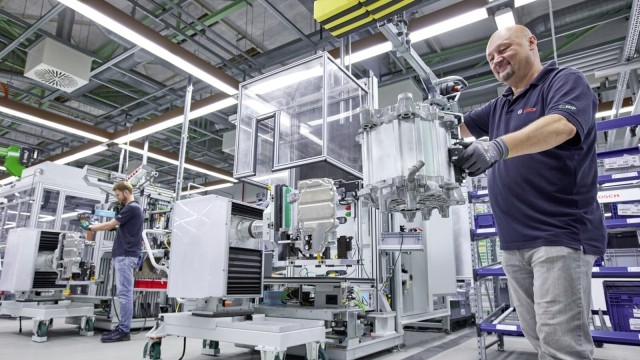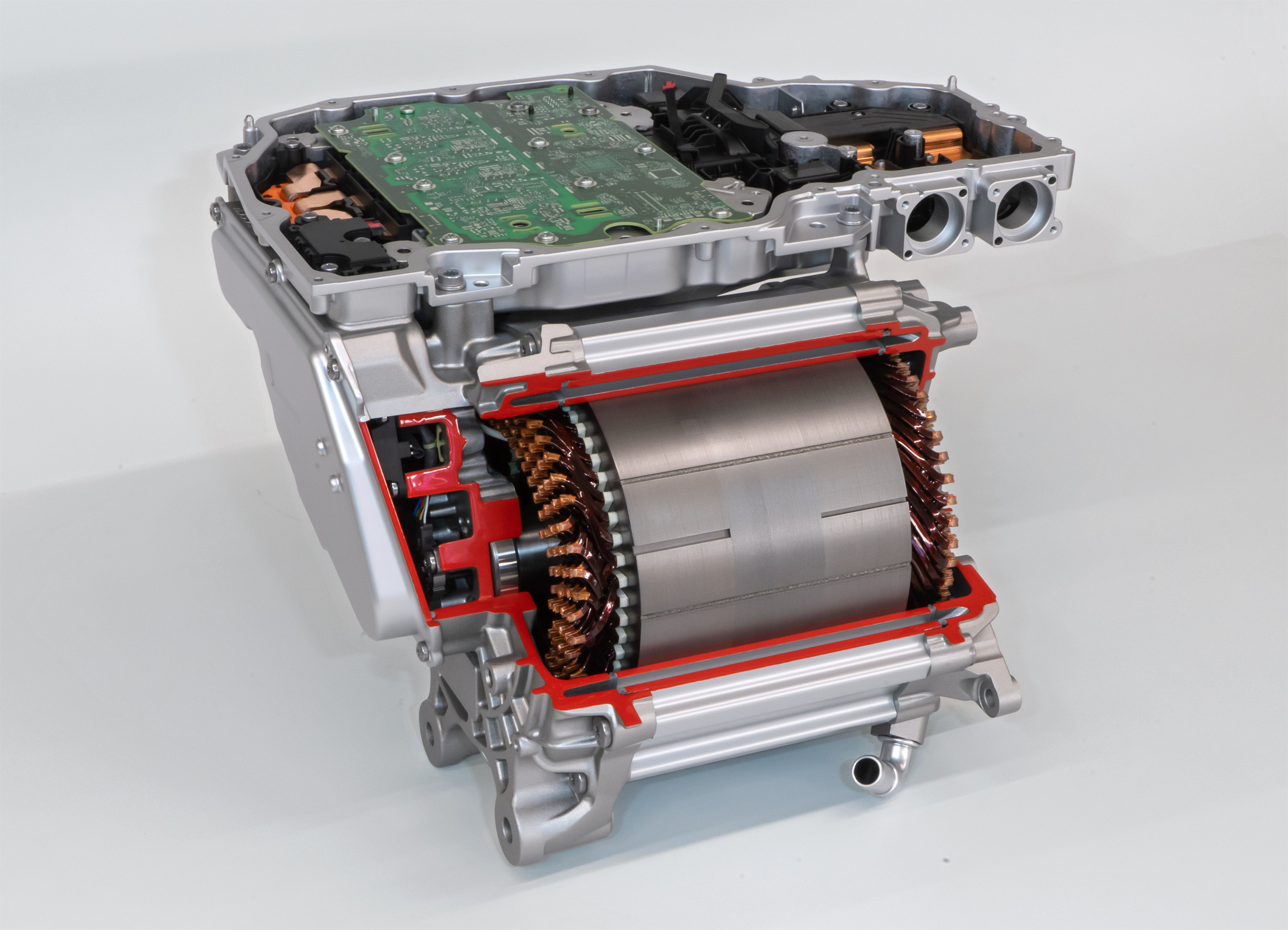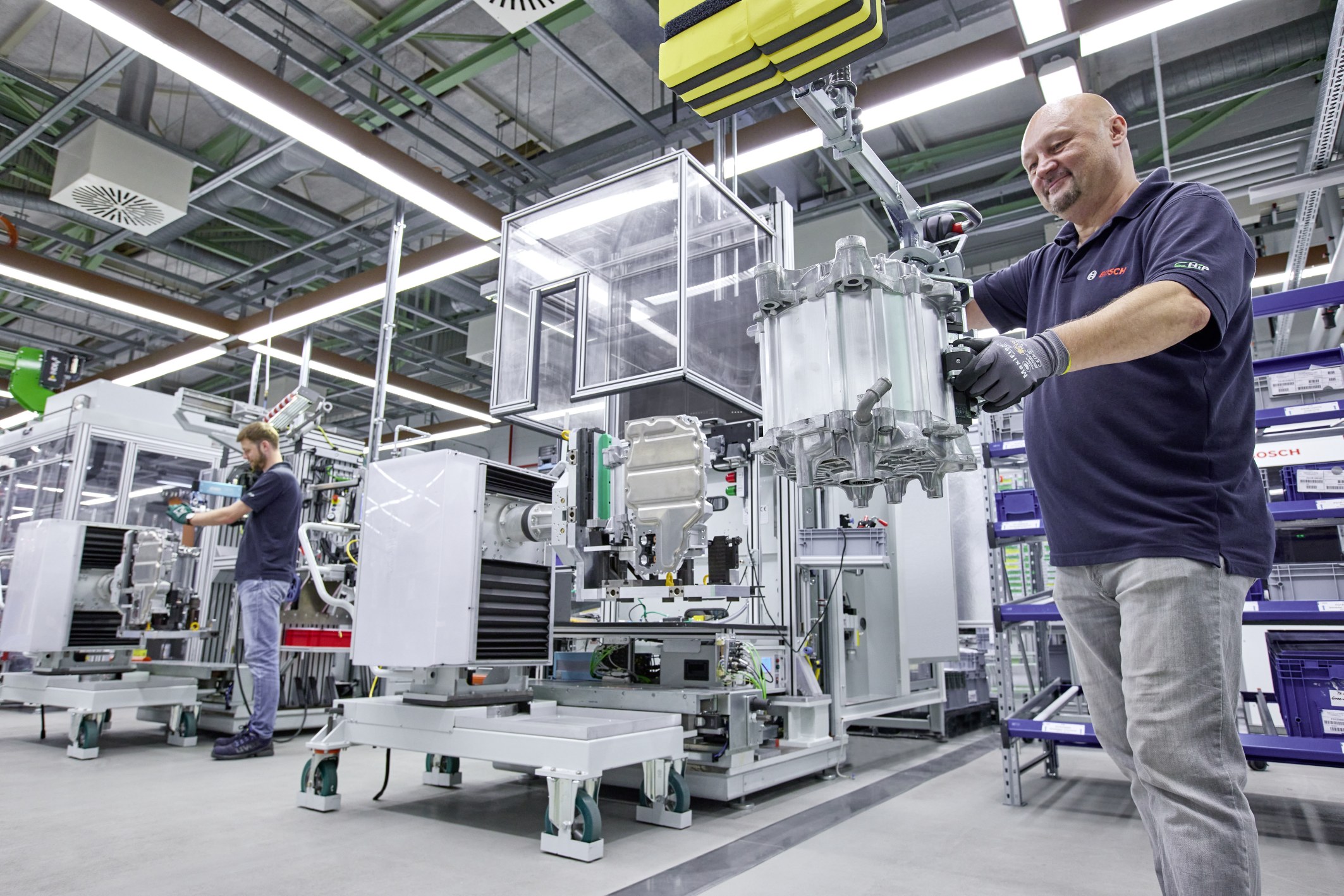Stuttgart, Germany – Vans and medium-sized trucks are the beating heart of urban goods traffic. Powered electrically, they are locally emission-free, contribute to better air quality and reduce noise pollution for residents. Bosch is now starting volume production of a new drive unit for such light commercial vehicles, consisting of an electric motor and an integrated inverter. The inverter controls the electric motor and provides the connection to the high-voltage battery. “Bosch is driving forward e-mobility also in commercial vehicles. Compared to its predecessors, the new unit provides even higher power and torque density and is even lighter and more compact,” says Dr. Markus Heyn, member of the Bosch board of management and chairman of the Mobility Solutions business sector. Together, the motor and inverter weight is around 80 kilograms. Bosch has reduced electrical losses by more than 20 percent using new power semiconductors, which enables an inverter efficiency level of 97 percent, thereby increasing the vehicles’ range. Thanks to the flexible construction, it is also now even easier to integrate the drive module into existing and new vehicle models.
The electric drive will make its debut at the customer Daimler Truck, supplemented by a DC/DC converter and the vehicle control unit from Bosch for the drivetrain. The unit’s maximum power is 129 kW, while the continuous power is 100 kW. For a short time, the permanent-magnet synchronous machine can generate a peak torque of 430 Nm. Even at a vehicle weight of 8.5 tons, this ensures superior driving performance in every situation – including in hilly cities such as Tokyo, Rome, or San Francisco.







